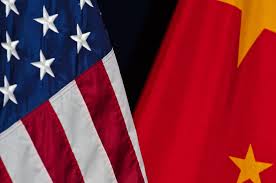- Link to a blog post about presidential powers
- Link to a blog post about security clearance procedures
- Link to a blog post about political polarization in the US
- “Trump security clearances Gabbard: A deep dive into the controversy surrounding the revocation of Tulsi Gabbard’s security clearance.”
- “Understanding the implications of Trump’s decision to revoke security clearances, focusing on the high-profile case of Tulsi Gabbard.”
- “Explore the legal, ethical, and political ramifications of the Trump administration’s security clearance decisions.”
Trump Security Clearances Gabbard: Unpacking the Controversy
The revocation of security clearances by former President Donald Trump, particularly the high-profile case involving Tulsi Gabbard, sparked intense debate and public scrutiny. This action, taken during Trump’s second term, ignited a firestorm of controversy, raising questions about presidential authority, political retribution, and the importance of security clearance protocols. This in-depth analysis delves into the key aspects of this complex issue, examining the events, the arguments surrounding them, and their lasting implications.
Understanding Security Clearances and Their Significance
Before diving into the specifics of the Gabbard case, it’s crucial to understand the significance of security clearances. These clearances are granted to individuals requiring access to classified information, ranging from confidential to top secret. The process is rigorous, involving extensive background checks and vetting to ensure trustworthiness and loyalty. The granting or revocation of such clearances carries substantial weight, impacting careers, reputations, and national security.
The individuals who hold these clearances often work in sensitive government positions, national security roles, or high-ranking positions within the military. Maintaining the integrity of this system is paramount to protecting national secrets and safeguarding the country from potential threats. Any perceived breach of this trust can lead to severe consequences.
The Tulsi Gabbard Case: A Detailed Examination
Tulsi Gabbard, a former Democratic congresswoman and outspoken critic of Trump, found herself at the center of this controversy when her security clearance was revoked. The decision, announced publicly by Trump, fueled accusations of political retaliation and an abuse of presidential power. Trump cited Gabbard’s public criticism and perceived disloyalty as the reasons for the revocation.
Gabbard, in her response, countered that the action was politically motivated, designed to silence dissent and punish those who dared to challenge the president’s narrative. She argued that her criticisms were rooted in her belief in upholding American values and principles, not in any attempt to undermine national security.
Arguments For and Against the Revocation
The revocation of Gabbard’s security clearance sparked a heated debate, with strong arguments presented on both sides. Supporters of Trump’s decision argued that he had the authority to revoke clearances based on concerns about an individual’s trustworthiness and potential threat to national security. They emphasized that the president bears the ultimate responsibility for protecting classified information and has the right to remove access from individuals deemed unreliable.
Conversely, critics argued that the revocation was a blatant act of political retribution, designed to silence dissent and punish those who challenged Trump’s authority. They pointed to the lack of transparency and due process in the decision-making process, arguing that Gabbard was not given a fair opportunity to defend herself against the accusations.
Legal and Ethical Implications
The Gabbard case raises important legal and ethical questions surrounding presidential authority and the due process rights of individuals whose security clearances are revoked. While presidents have the authority to revoke clearances, there are concerns about the potential for abuse of this power for political purposes. The lack of clearly defined guidelines and procedures for revocation adds to the ambiguity and raises concerns about fairness and transparency.
Furthermore, the case highlights the tension between freedom of speech and the need to protect national security. While individuals have the right to criticize their government, the question remains as to where the line should be drawn, and whether such criticism can justify the revocation of security clearances.
The Broader Context: Presidential Power and Political Polarization
The Trump security clearance controversies, including the Gabbard case, occur within a broader context of increased political polarization and questions about the limits of presidential power. Trump’s actions were seen by many as an attempt to consolidate power and punish his opponents, exacerbating existing political divisions.
This episode underscores the importance of maintaining checks and balances within the government to prevent abuses of power. It also highlights the need for clearer guidelines and procedures regarding security clearance revocations to ensure fairness, transparency, and due process for all involved.
Conclusion: Lasting Impacts and Future Considerations
The Trump security clearances controversy, particularly the case involving Tulsi Gabbard, remains a significant event in American politics. It highlighted the complexities of balancing national security with individual rights and freedom of speech. The debate sparked by this incident continues to shape discussions about presidential authority, political retribution, and the transparency of security clearance processes. Moving forward, it is essential to establish clearer guidelines and procedures to prevent future abuses of power and ensure fairness and due process for all individuals whose clearances are under review. This will help to restore public trust and maintain the integrity of the security clearance system.
Call to Action: What are your thoughts on the Trump security clearances controversy? Share your opinions in the comments below!
—
Internal Linking Suggestions:
Meta Description Ideas:

